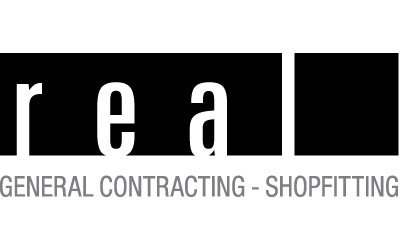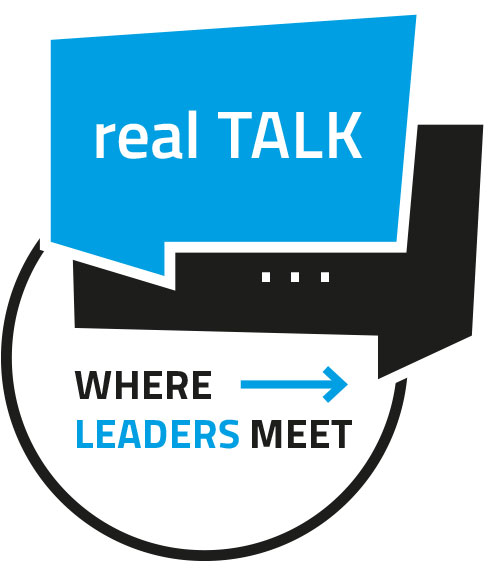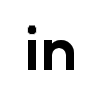Today we talk to Sonja Hanau, founder of Meetingschmiede. Her credo: Meetings can be fun. And for that very reason produce extraordinary results.
red. What makes you think that seasoned entrepreneurs can’t hold successful meetings?
Hanau. (laughs) Did I say that? But it’s true, since I’m basically convinced that you can always get better in all disciplines, that also applies to meetings of seasoned entrepreneurs. At least I know few people who regularly leave their meetings with the words “Oh, that was another really good meeting”. On the other hand, I know many who would like to have fewer meetings, would like to have more lively meetings, or would simply like to see better results.
red. How did you come to this topic and the idea of developing a business model from it?
Hanau. As a project manager and executive in a corporate group, I myself had countless meetings with which I was not satisfied. At some time, I reached the point where I thought – there must be another way. I gave up my management position and concentrated on finding simple ways to make meetings better in everyday life. For many people, meetings have always been part of their everyday work, a bit like brushing their teeth – so the enthusiasm was correspondingly great. At the beginning, I encountered a lot of incomprehension. I quickly realized that most people are not aware that meetings can be designed consciously. And even if they were, they often lacked ideas about what could be done differently. This is exactly where I start.
red. Since 2020, the meeting culture has changed significantly. Surely that has rapidly changed your business model?
Hanau. Absolutely. Whereas previously in Germany face-to-face meetings were often the standard and remote or hybrid meetings were treated rather stepmotherly, now everyone was forced to hold meetings in the online world. And suddenly the number one question was “We don’t know how to have good online meetings – can you help us?”. The exciting thing is, a lot of the success factors are identical, it’s just that in face-to-face version, it’s not as noticeable when they’re not there. Besides the general increase in demand, the more holistic focus on all meeting types, I also appreciate the new flexibility of being able to give a training “in Hamburg” in the morning and “in Munich” in the afternoon, previously unimaginable.
red. We came across your “six tips for successful hybrid meetings” in Handelsblatt. Can you summarize the essence of the article for us in a few words?
Hanau. Being able to lead meetings well is a skill that is worth training for. Hybrid meetings are the most challenging form of meetings because both the on-site space has to be managed, at the same time still the online participants and then also both worlds have to be connected. Therefore, the decision for a hybrid meeting should be a very conscious one – and if it is made, then only if I am prepared to design the meeting accordingly. In such a way that it exploits the strengths of the hybrid. Specifically, if I want to take advantage of the physical proximity of some, then I can’t do a 90 minute frontal. If I plan a meeting in which equal interaction and exchange are the focus, the additional effort for a hybrid meeting is worthwhile in any case. Otherwise, an online meeting is the better choice in case of doubt. And it takes time and patience to hold good hybrid meetings – and it’s worth it to have both.
red. What is lost in online versus real meetings?
Hanau. Most of the time, there’s no sense of how what is said is received, what the mood in the room is like. Online, everything has to be much more explicit. If I only slightly pull my mouth away, no one will notice. But if I want that, I have to express myself, show stronger emotions or send an emoji. But that’s a conscious decision – and happens much less often. In addition what’s also missing is the common ground: the arrival, the conversations in between until things get going, and the talking to each other in the hallway after the appointment. These are the soft factors – but with a little bit of willpower, they can also be compensated for online to a certain extent, for example by dividing the group into small groups at the beginning, in so-called break-outs. This requires awareness, ideas and the courage to do things differently. Precisely because some things are lost online, hybrid meetings offer a good alternative in some cases. This is exactly where hybrid meetings come into play – I want to make possible what is possible on site. For this, I accept more organizational effort, but for some I have created the opportunity to feel proximity. At the same time, there are also topics for which online meetings are the best choice. A brainstorming session with many participants would never be as efficient on-site as online.
red. Do you see yourself as a coach for the organizer, as a professional moderator or as the founder of the blueprint for a strong meeting?
Hanau. For me, the mix is what’s exciting and it depends on the context – each role brings different insights and challenges. My focus is on the initial impetus, raising awareness, and subsequent empowerment of teams or participants. I prefer to work with teams over several weeks in small units to try out new things step by step and to have enough time to try them out in practice. And to be there when the sometimes painful skill does not fall from the sky, but has to be worked on continuously. When important meetings are coming up, I also coach leaders and we create the meeting design together. What I like about facilitation is to build stages for people and topics and to see what beautiful things can emerge from them.
red. In your opinion, what are the classic mistakes in business events?
Hanau. Many meeting participants and especially organizers are busy – and need a meeting quickly to find out or clarify certain things. But because there is rarely a conscious meeting design, most meetings are not half as good as they could be. Instead of spending 60 minutes with 10 people in a meeting, it would be better for everyone if the organizer spent 30 minutes preparing the meeting well, and then it only lasted 30 minutes because of that. Also, many things can be done much better asynchronously, but for convenience they are still moved to meetings. (Author’s note: Ms. Hanau subsequently referred to an article in her blog with the title “Hybrides Arbeiten – 5 Schlüssel zum Erfolg “)
red. What goals should meetings pursue? Is there a cross-industry statement?
Hanau. Meetings should pursue a goal in the first place. It sounds banal, but in my experience, over 80% of meetings have no goal or no good goal. Good in the sense that it is clear and a meeting can also be steered towards it. “To exchange views on the topic again” or “to bring up to date” sounds sensible at first glance, but inevitably leads to getting lost in details or not getting past the really important points. An answer to the question “What should be different after this meeting?” is a good starting point for finding a good goal.
red. Do you play an advisory or even creative role in the selection of meeting participants?
Hanau. The selection of participants is one of many components of a good meeting design. In coaching, my focus is more on helping to find a suitable meeting structure and methodology to achieve the meeting goal. Who should participate is best decided by the managers/organizers – at most I ask again in which role the person is invited.
red. Do you know any top experts in your niche who are known worldwide? Who else can you learn from besides yourself?
Hanau. I listen to a lot of podcasts around facilitation. Here I can recommend the podcasts of Dr.Myriam Hadness “workshops.work” and Leanne Hughes “First time Facilitor”.
red. The key question about your business … why should entrepreneurs book you?
Hanau. Collaboration, especially in meetings has often been established and solidified over years. At some point, many feel “Somehow our meetings aren’t that great,” but lack the idea of what they can do differently. And that’s where I come in – to the extent desired. Sometimes it’s impulse talks, sometimes a multi-month series. At the moment, I’m noticing an increased need for how, for example, all the functions that Microsoft Teams brings with it can actually be used in such a way that, in the end, people work together better.
red. What are your ideal customers?
Hanau. People and teams who want to try something out for themselves. Who are willing to get involved in new things and want to find out what helps them. Teams that on the one hand say “we want better meetings” but on the other hand are skeptical of every idea, don’t see any point in it and are not willing to try anything out are exhausting at best. For me, it’s about bringing sustainable changes in collaboration, and that works much better with motivated people.
red. Three more personal questions, number one: What is your zodiac sign and does it mean anything to you?
Hanau. I’m an Aries – and apart from the fact that I always wrote it in my friends’ books when I was at school, it plays no role in my life.
red. Two: If you had three words to describe yourself, what would they be?
Hanau. #simplymake #fullofenergy #newideas
red. One last question: where do you see yourself and your business in 10 years?
Hanau. My goal has always been to keep finding new, small and simple ways to help people work together better. In terms of content, the future focus will be a bit broader on hybrid collaboration, but at its core it will remain meetings. Over the next year, I’ll continue to expand “on-demand” content like videos to further increase the sustainability of live efforts. In April my first book will be released, which I’m co-writing with Gesine Engelage-Meyer of teamElephant – a book to help teams work together well in hybrid meetings. I’ve been writing a regular newsletter with small, concrete ideas until this summer – that’s taken a bit of a back seat, but will change again in 2022. It won’t be boring and I’m excited to see what the next few years bring. In any case, fewer and simply good meetings.




